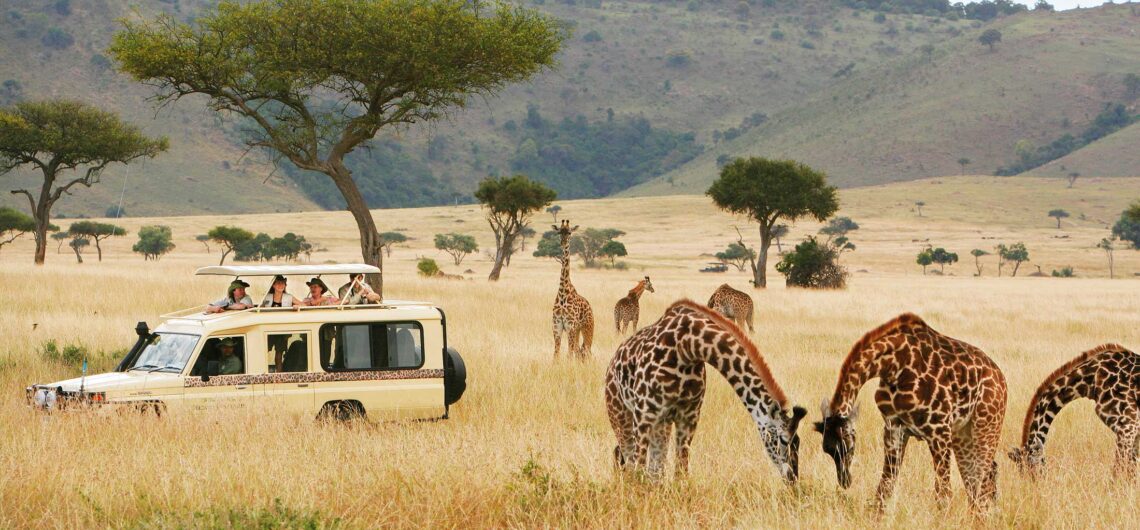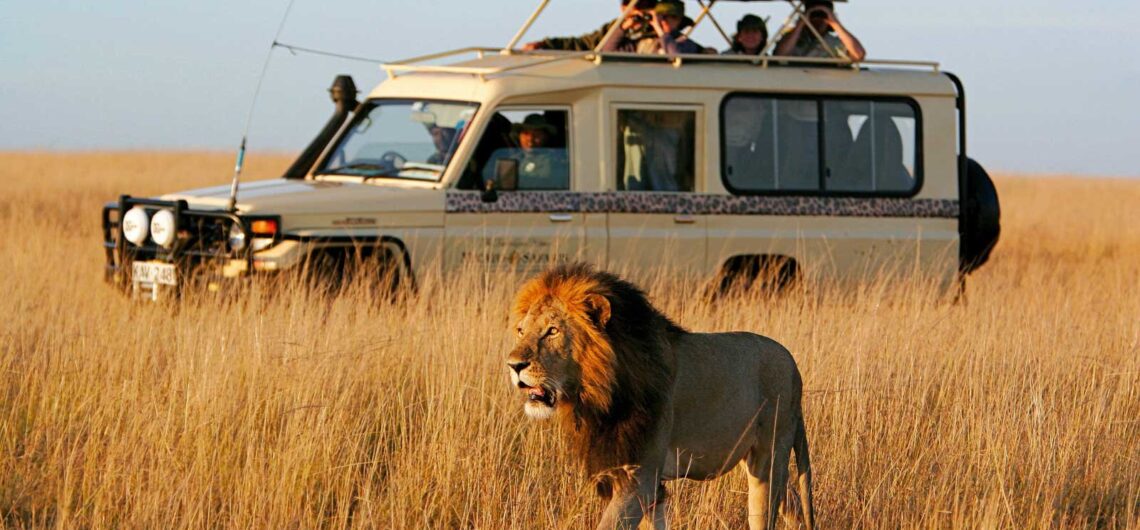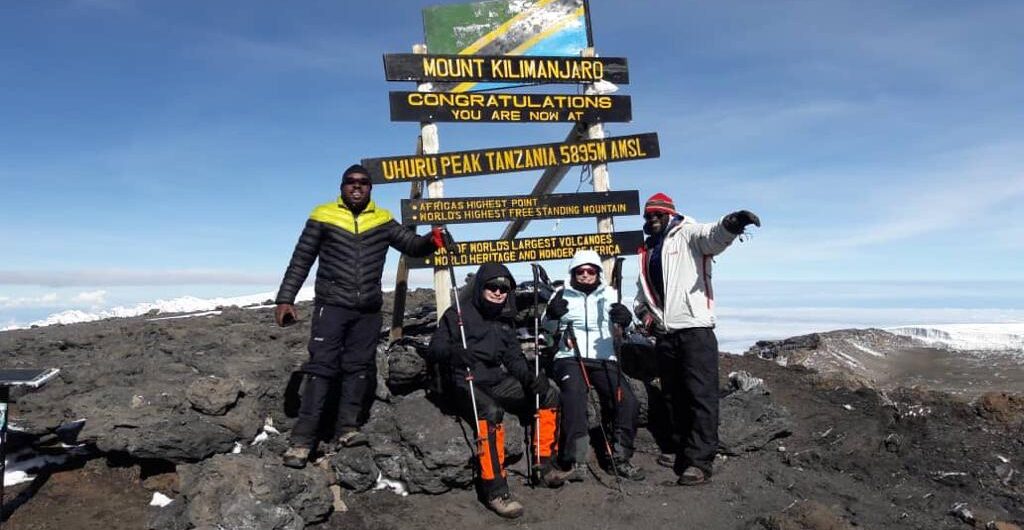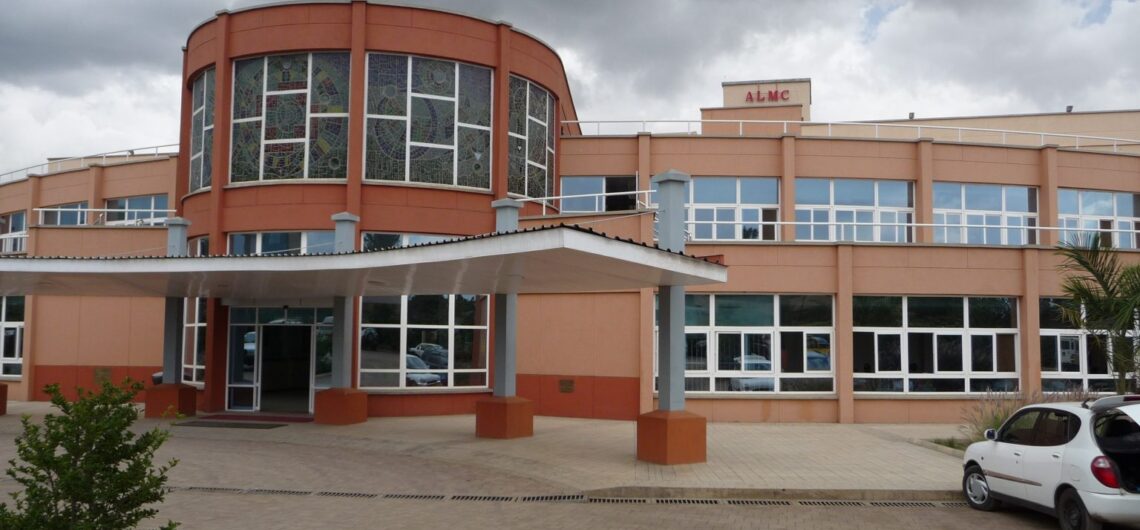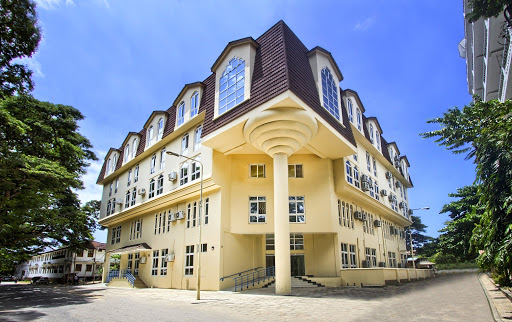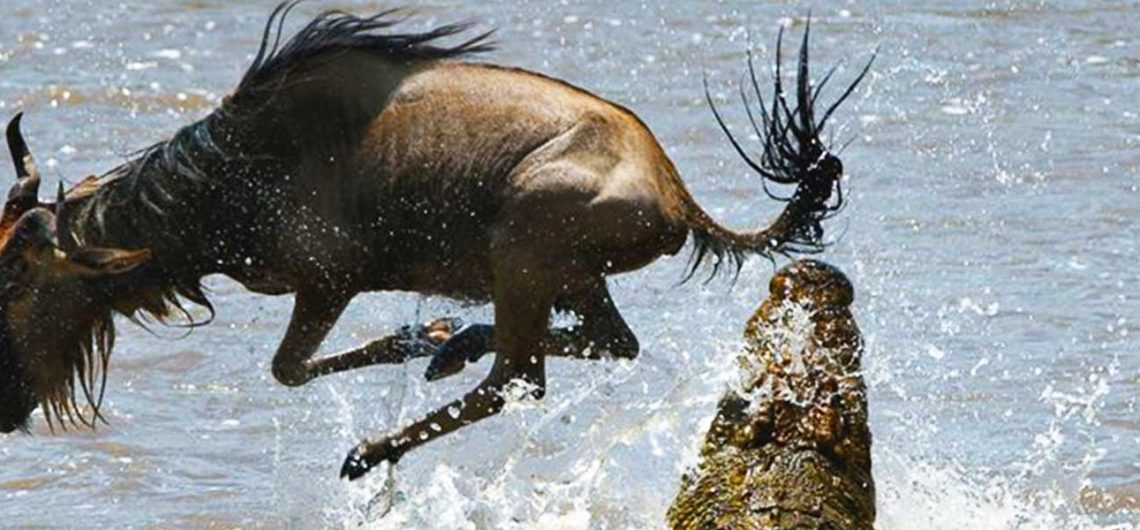When is the best time to climb Mountain Kilimanjaro? Tourist Seasons on Mount Kilimanjaro Mountain Kilimanjaro is strategically located near the equator and this implies that the surrounding areas do not encounter the maximal summer or winter conditions however, they experience the rainy and dry seasons. The recommended time to hike Mountain Kilimanjaro is during the hottest months of the year. The main concern while hiking is your safety and the possibility of danger is much higher during poor weather conditions. The impact of cold, snow, rain, mud as well as ice is very exhausting as well as taxing on a person. During the dry season, the likelihood that you will have a great hike is high. Consequently, majority of the people flock Mountain Kilimanjaro during this season. Can Mountain Kilimanjaro be climbed throughout the year? Yes, the mountain can be climbed throughout the year, but it is advisable that you plan your Mount Kilimanjaro Hike when there are less chances of rain. The best time to climb Kilimanjaro is from early December until early March as well as from end of June until late October when the country is experiencing the dry season. However, as a result of the conducive hiking conditions during these months; the mountain receives the highest number of hikers making it the peak hiking season. Planning to hike soon? Taste for Afrika organizes group hikes during the dry season, and you can contact our travel experts to PLAN YOUR HIKE today The Tourist Seasons on Mountain Kilimanjaro Mount Kilimanjaro experiences two (2) main tourist seasons and these are: the dry annual season and the moon season which see the largest number of hikers climbing the mountain. Full moon season on Mountain Kilimanjaro There is no view more breathtaking than the sight of the summit of
When is the best time to climb Mountain Kilimanjaro?
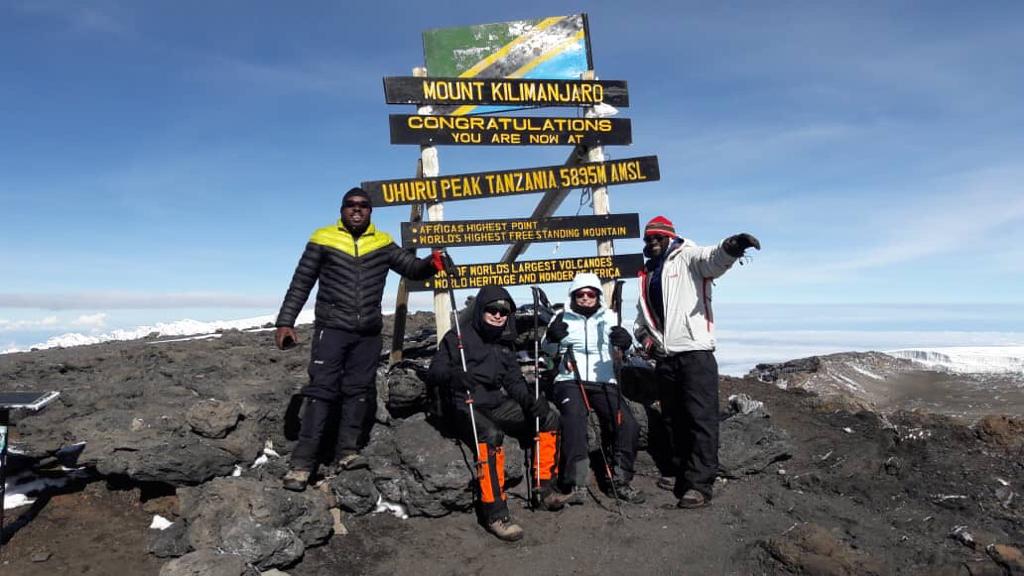
Tourist Seasons on Mount Kilimanjaro
Mountain Kilimanjaro is strategically located near the equator and this implies that the surrounding areas do not encounter the maximal summer or winter conditions however, they experience the rainy and dry seasons. The recommended time to hike Mountain Kilimanjaro is during the hottest months of the year. The main concern while hiking is your safety and the possibility of danger is much higher during poor weather conditions. The impact of cold, snow, rain, mud as well as ice is very exhausting as well as taxing on a person. During the dry season, the likelihood that you will have a great hike is high. Consequently, majority of the people flock Mountain Kilimanjaro during this season.
Can Mountain Kilimanjaro be climbed throughout the year?
Yes, the mountain can be climbed throughout the year, but it is advisable that you plan your Mount Kilimanjaro Hike when there are less chances of rain. The best time to climb Kilimanjaro is from early December until early March as well as from end of June until late October when the country is experiencing the dry season. However, as a result of the conducive hiking conditions during these months; the mountain receives the highest number of hikers making it the peak hiking season.
Planning to hike soon?
Taste for Afrika organizes group hikes during the dry season, and you can contact our travel experts to PLAN YOUR HIKE today
The Tourist Seasons on Mountain Kilimanjaro
Mount Kilimanjaro experiences two (2) main tourist seasons and these are: the dry annual season and the moon season which see the largest number of hikers climbing the mountain.
- Full moon season on Mountain Kilimanjaro
There is no view more breathtaking than the sight of the summit of Mountain Kilimanjaro as well as its majestic glaciers illuminated by the full moon. This has motivated a number of hikers to plan their climb to take place simultaneously with this astronomical occurrence which happens once every month. On the other hand, a rational motive for hiking Mountain Kilimanjaro during the full moon is that it will provide light on your trek and you will be able to see clearly particularly on the day for the summit attempt.
In case you prefer hiking with a small crowd, you should ensure that you do not schedule your trip around the full moon since large numbers of people climb the mountain during this period which consequently increases demand on Mount Kilimanjaro Accommodation. Alternatively, if you are trying to avoid large numbers of people, you can choose a low day. Majority of hikers usually start their climb over the weekend or on Monday and their treks will go on for about six to seven days.
- The dry season on Mount Kilimanjaro
The mountain experience two ‘dry’ seasons one running Between the start of January and mid-March, and the other starting from mid-June until October is over. During this time, the weather is so warm, characterized by a vibrant cloudless sky with minimal chances of rain showers during the day. These conditions make it very conducive for hiking with thousands of both experienced and non-experienced hikers trying to summit Kilimanjaro – the rooftop of Africa. This is the busiest time on the mountain.
on the other hand, the wet season runs from late March to the beginning of June. Hiking the mountain during this time is not advised as the risks are high, and consequently, there are fewer people up the mountain this time of the year. But you can go climbing if you are a highly skilled and competent hiker who has climbed in such an environment before. The ground is extremely soggy, and it could be a bit difficult to see as a result of the dense clouds. The brief / short wet season runs from early November until early December and rain will mostly be received in the afternoon. In the mornings as well as the evenings, you will experience clear skies. You should know however that the rain varies and can be received before or after the expected times during the day.
Monthly guide on the best time to hike Mountain Kilimanjaro
Mid-January to March
Starting from mid-January to mid-March is the best time to hike Mountain Kilimanjaro. The climate on the mountain is suitable and there is less traffic. The days are warm with little clouds and low chances of rain. The possibility of rain progressively increases during March when the lengthy wet season begins.
April to End of May
The major rain season starts from late March until the middle of June. It is a bit hard to tell precisely when it will begin raining and when the rain will stop. This time the country is generally experiencing hot temperatures with Feb and March being the hottest but the mountain on the other hand is receiving rain. Consequently, most operators do not recommend any hikes during the months of April and May.
June to End of July
The temperatures begin to drop on Mountain Kilimanjaro as the rain progressively reduces. The climate becomes relatively arid however the evenings are characterized by extreme coldness. June usually passes by uneventfully up the mountain however the crowd of hikers increases as the year continues.
August to mid-October
The months of August through September have the highest number of climbers on Mountain Kilimanjaro. The climate is conducive and is comprised of hot days with clear skies. These months are hotter than June and July. You may experience a little rain on the initial days of your climb via the southern routes and you may witness clouds covering woodland or grassland zones. After you step out of the forested area, everything will be okay. This amazing weather will continue until the middle of October and then the brief rain season will start.
Mid-October to November
The temperatures on Mountain Kilimanjaro become uneven and start fluctuating during these months. This season is characterized by periodic thunderstorms. If you are competent enough to endure a little rain, you will be good to go.
November to December
November has a brief wet season, and this continues until mid-December. The temperatures are low and there are several risks that accompany the rain therefore it is not advisable to climb Mountain Kilimanjaro during this time.
December to mid-January
The weeks leading up to the festival Christmas season as well as the New Year are also a peak season with a big number of hikers attempting to summit the Kilimanjaro. although there is a high possibility of rain and there are dense clouds in the skies, this does not stop holidaymakers visiting the mountain. This is generally not a recommended time to hike Kilimanjaro either way as the routes are generally slippery and visibility is not good.
In-conclusion
Nonetheless, feedback from our clients at Taste for Afrika who hike during the full moon or in the dry season testify that they enjoy a better Mountain Climbing experience than during the rest of the year. checkout our exciting Mount Kilimanjaro Itineraries.
Planning to Hike Kilimanjaro Today?
Contact our experts today to help you plan a memorable hiking trip the suits yo


